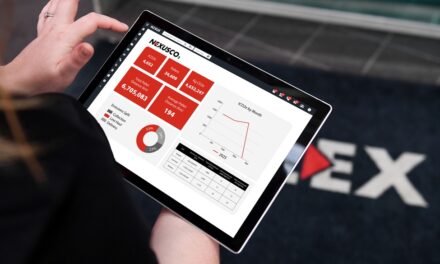
USPS seeks NSA to boost first class use
The U.S. Postal Service filed for its first Negotiated Service Agreement based on encouraging a mailer to increase its use of First Class mail.
The USPS seeks a three-year agreement with Washington Mutual Bank covering First-Class Mail for the bank's credit card services. The request was made to the Postal Rate Commission on Wednesday.
An NSA is a contract between the postal service and a company, providing customized pricing incentives based on the company's mail operations. According to the filing, the USPS estimates it will benefit by $46.3 million over the life of the NSA.
Washington Mutual, Seattle, provides financial services for consumers and small businesses. As of Dec. 31, the company and its subsidiaries had assets of $343.1 billion. It operates 2,600 retail banking, mortgage lending, commercial banking and financial services offices nationwide.
Washington Mutual would get declining block rates for mailing volumes above certain thresholds of First Class Mail relating to the company's credit card products and credit services, the filing said.
The discount threshold is set at 450 million pieces of mail for the first year. For example, the company would get a discount starting at 2 cents if it mails 450 million to 465 million First Class pieces that year.
The case is unlike other NSAs in that the deal's economic value derives mainly from the higher volumes. In other filings, savings from conversion to Address Correction Service were developed as a partial tradeoff in proposing discounts.
As a result, the NSA includes a new feature called a Solicitation Mail Volume Guarantee whereby in each year Washington Mutual would commit to sending the lesser of 500 million credit card solicitations as First Class or 90 percent of its total credit card solicitation mail as First Class. The company traditionally sends its credit card solicitations as Standard Mail.
If in any year Washington Mutual fails to meet this commitment, the USPS can terminate the agreement, and the company pays $250,000.
The USPS aims to increase its First Class volume. First Class declined 5.3 percent in the past five years while Standard Mail volume grew 12.1 percent. However, Standard Mail provides far less revenue per piece to the postal service than does First Class.
The USPS forecasts that First Class volume, particularly single-piece letter volume, will continue to decline.
Besides the volume requirement, the USPS would give Washington Mutual, at certain volume levels, electronic address corrections without fee for solicitations sent by First Class that are undeliverable as addressed and cannot be forwarded under existing regulations. In return, the company would forgo its practice of receiving free return of such undeliverable mail, under the existing service features of First Class Mail.
Secondly, the company will apply for participation in the PostalOne system for permit mail that the company enters directly into the mail stream. PostalOne links customers' mailing information electronically with USPS acceptance, verification and payment systems, eliminating most of the paperwork involved.
Thirdly, the USPS is developing an enhanced Address Correction Service to be named OneCode ACS. The NSA envisions that the company will use commercially reasonable efforts to implement OneCode ACS once it becomes available.
The changes in rates and mail classification needed to implement the NSA require review and recommendation by the PRC and then approval by the USPS Board of Governors.
The governors previously approved NSAs with HSBC North America Holdings, Capital One Service, Bank One (now JPMorgan Chase) and Discover Financial Services, all for First Class Mail. The PRC has not yet ruled on a proposed NSA for Standard Mail with Bookspan book clubs. NSAs have generated $34 million in revenue in two years for the USPS.









